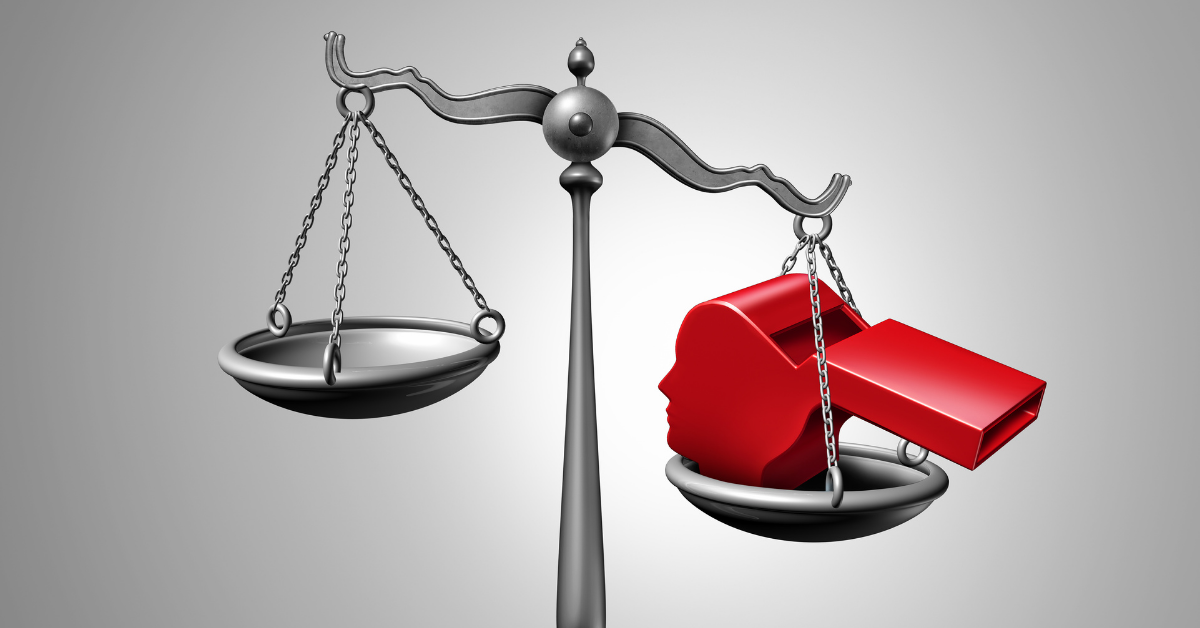Memphis Retaliation Lawyers
Blow your whistle! FWEET! FWEET! What is whistleblowing?
Whistleblowing is when an employee raises concerns about harmful, or illegal practices occurring within the workplace. The person doing the reporting can be a current or past employee. Whatever is being brought up can be a current issue, something from the past, or something that may occur in the future. Corruption, fraud, bullying, health and safety violations, and discrimination are illegal practices that a whistleblower may speak out about.
There are two types of whistleblowing. The first is internal whistleblowing in which the whistleblower reports misconduct to another person within a company. For example, an employee at a warehouse facility witnesses a supervisor steal money, property, inventory, and supplies to the company’s corporate headquarters is an internal whistleblower.
Some companies have internal whistleblowing policies and procedures in place, such as an anonymous hotline or web portal for making reports. Employees must comply with these policies as stipulated by their employment contracts. The second type is external whistleblowing in which the whistleblower reports misconduct to a person outside the organization, such as a federal, state, local agency or the media. An example would be when an employee who works for a food establishment informs the local health department about improper food handling. With any type of whistleblowing, the person who is reporting wrongdoing must do so in good faith in that he or she reasonably believes wrongdoing has occurred or will be occurring.
Whistleblowers often face retaliation from their employer, who may suffer damage to their brand or reputation as a result of the whistleblowing, or from coworkers who may have been involved in the illegal activities. There is a lot at stake for both the employer and employee when it comes to whistleblowing which is why there is legislation in place to protect whistleblowers. There are various federal, state and local laws in place to protect employees from retaliation. The most well-known of these is the Whistleblower Protection Act. Others include the Sarbanes-Oxley Act and the Dodd-Frank Act. When an employee correctly follows the reporting, procedures outlined in these laws, he or she is protected from retaliation for acting as a whistleblower, even if his or her allegation is found to be incorrect. States have their own whistleblower laws, which protect state, public and/or private employees. Unlike the federal laws listed above, these state laws do not compensate whistleblowers if they are retaliated against, but rather concentrate on preventing retaliation towards the whistleblower. It is also important for employers to have a whistleblowing policy so that employees feel empowered in airing illegal practices in the workplace. It goes without saying, “If you see something, say something!”


